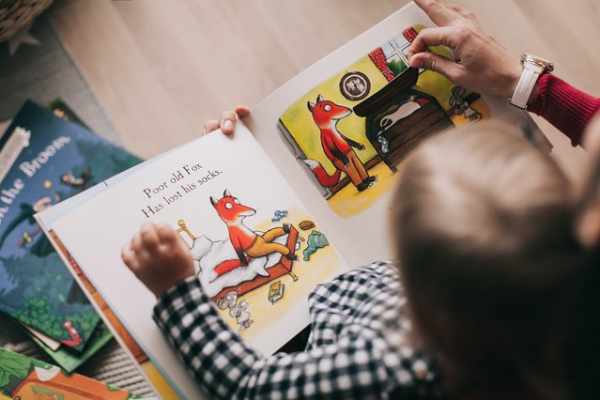The way we behave with children directly affects their emotional development, behavior, and future life. Anxious parents have anxious children. If we are unhappy, then our children are most likely doomed to misfortune. Here are a few mistakes that many make out of habit, not thinking about the consequences for the child.
Mistake # 1: Manipulation
The threat to stop loving is the most terrible words that can cause serious injury. To be loved is the basic need of any person. The kid should know that your feelings for himor her are unconditional; you fully accept him. Otherwise, you accustom the child to the fact that love is not given just like that; it must be earned. Growing up, s/he continues to deserve this love from others, to try to please, to be suitable for everyone, this affects the choice of a future partner and relationship with him.
Mistake # 2: Overprotection
Excessive control kills self-control, independence. Such children grow up in infantile adults, not able to make decisions, refuse others.
If the child has a desire to do something, give him that opportunity, but first, teach him. It is especially important not to rush three-year-old children during a crisis of independence. Often in a hurry, it is easier for parents to dress the baby themselves than to wait until he is “messing around.” Exit: wake him up earlier so that there is enough time for training.
Mistake number 3: inability to understand that a child is a person
Often, parents do not see in the child an independent person with their problems, character, understanding of life. But even the assertion that children have less experience than adults is highly controversial. Children have their own experience; in some areas, it is much more than adults.
Mistake # 4: hypo-care
In some families, children are left to their own devices, deprived of attention and care, and feel unloved and unwanted. Their loved ones perform their duties purely mechanically, believing that they coped with their primary task – to teach independence. But to teach independence is one thing, and letting education go by itself is another. Parents ignore the problems of the child, often annoyed. As a result, the child feels “bad,” “stupid,” guilty of family problems.
Mistake number 5: development at any cost
Often, out of good intentions, the child is forced to do it through “I do not want to,” repeating: “If you grow up, you will say thank you.” The possibilities of the child are vast, and if you wish, you can teach him to read, speak a foreign language at a very early age. The question is, why?
By intensely stimulating the intellectual development of the baby, we infringe on him in emotional development. Overloading with circles and sections leads to emotional burnout. It happens that preschoolers are so “loaded” with studies that they do not feel the slightest desire to go to school. Parents often go to extremes, trying to give their children something that they have not received. To realize their ambitions, they begin to consider the baby not as a separate person, but as a “business project” that should bring dividends.
Mistake # 6: Endless Inhibitions
First, we shout dozens of times a day: “Don’t!” “Don’t touch this,” “Don’t get in here” – and then we are surprised that he becomes unaware and insecure and blames him for it. A categorical prohibition without explaining the reasons only focuses on this and creates even more interest.
The child’s actions are dictated by the desire to explore the world around him, and if we do not allow him to take risks, make mistakes, fill up cones, he does not gain the necessary experience. It is crucial to create a safe space for experiments for the child to show that you respect his interests. Then, becoming an adult, he will not suffer from self-doubt and ignorance of his desires and needs.
Mistake # 7: corporal punishment, screaming, ignoring
The child should perceive the father and mother as close friends to whom you can entrust the innermost, and not be afraid of screams, notations, and even more so fists. Screaming and physical punishment is an act of parental impotence. It is also useless to read notations: the child copies the lifestyle of parents, he is brought up by the atmosphere in which he is. The biggest motivation is a personal example.
Not to talk with the child is the most challenging punishment from the psychological point of view, it is a kind of psychopathology and a sign of neurotic behavior.
Mistake # 8: Uncontrolled use of gadgets
It is hardly possible to completely ban a modern child from using a smartphone, laptop, tablet, but we must control this process. It is often easier for parents to put a cartoon on a tablet for their baby so that he does not interfere with doing things. When children brought up on gadgets come to school, a third of them show general underdevelopment of speech with intact intelligence. They do not know how to think in images, to express thoughts in writing, to build verbal answers.
Many people find it convenient when the child “sits in the computer”: formally he is at home, not in a dubious company, and there is no need to worry about his safety. But this is harmful not only for vision and posture but also for mental development. Instead of communicating with peers in real life, the child disappears in virtual reality, his emotional connection with loved ones is broken. Often this is the path to gambling, drug addiction, alcoholism, and other forms of addiction.
Mistake # 9: life for children
Children cannot be blamed for the contribution made to their development. The very fact of the child’s existence is a reward and compensation for the love, soul, time invested in him.
And then, what example and what kind of love can we give children if we do not love ourselves? Our inability to take care of ourselves, to treat ourselves with due care, can be transmitted to the child, having formed many complexes from excessive requirements.
Mistake number 10: lack of personal example
The truth is elementary: unhappy parents cannot have happy children. If the mother and father are anxious, neurotic, children will perceive their fears, neuroses, insecurity. It is useless to read notations about “what is good and what is bad”: the psyche of a child is formed under the influence of your communication, actions, behavior. Do not try to raise a child; in any case, he will be like you. Educate yourself.
Happy and mentally stable parents are the key to the future happiness of children.
About the author
Melisa Marzett is a young, but an experienced content writer who is currently writing for http://resumeperk.com/and formerly was working as a journalist and a translator. She travels a lot of gaining experience, knowledge, and skills. To stand still is not her cup of tea. Apart from writing and going somewhere, she loves handmade and sport.











